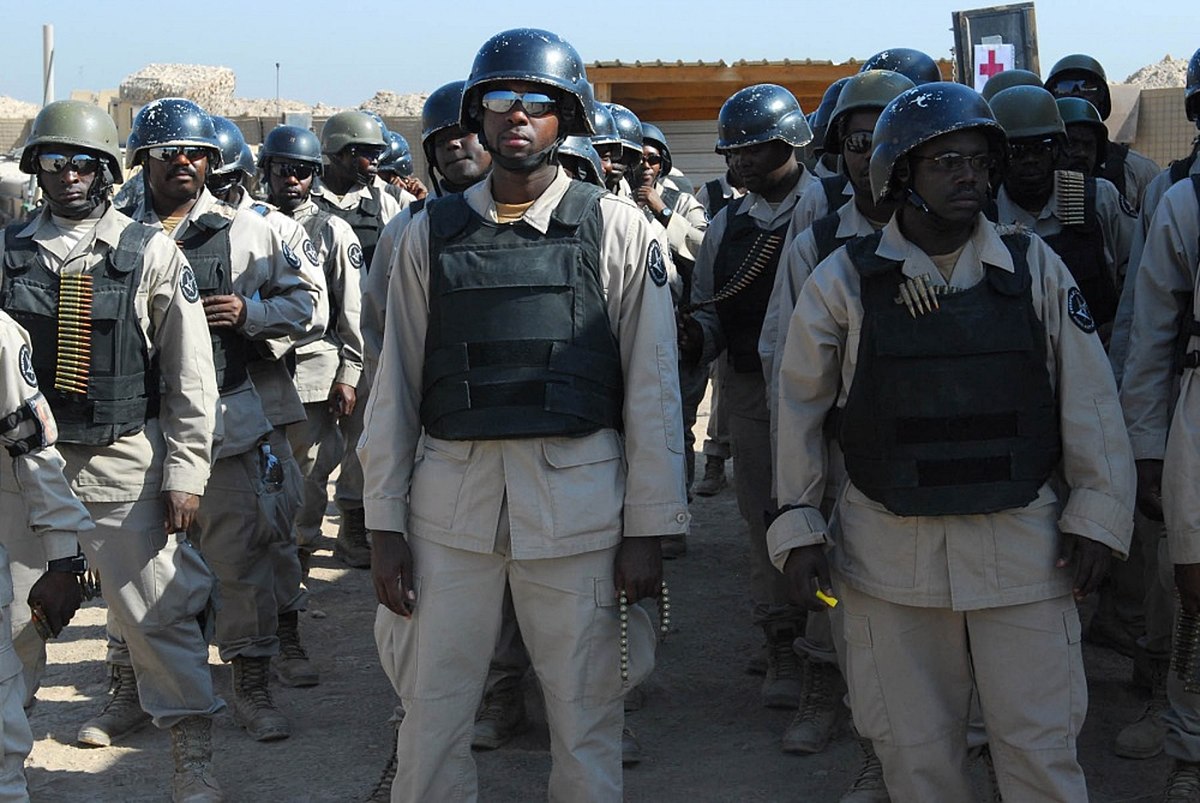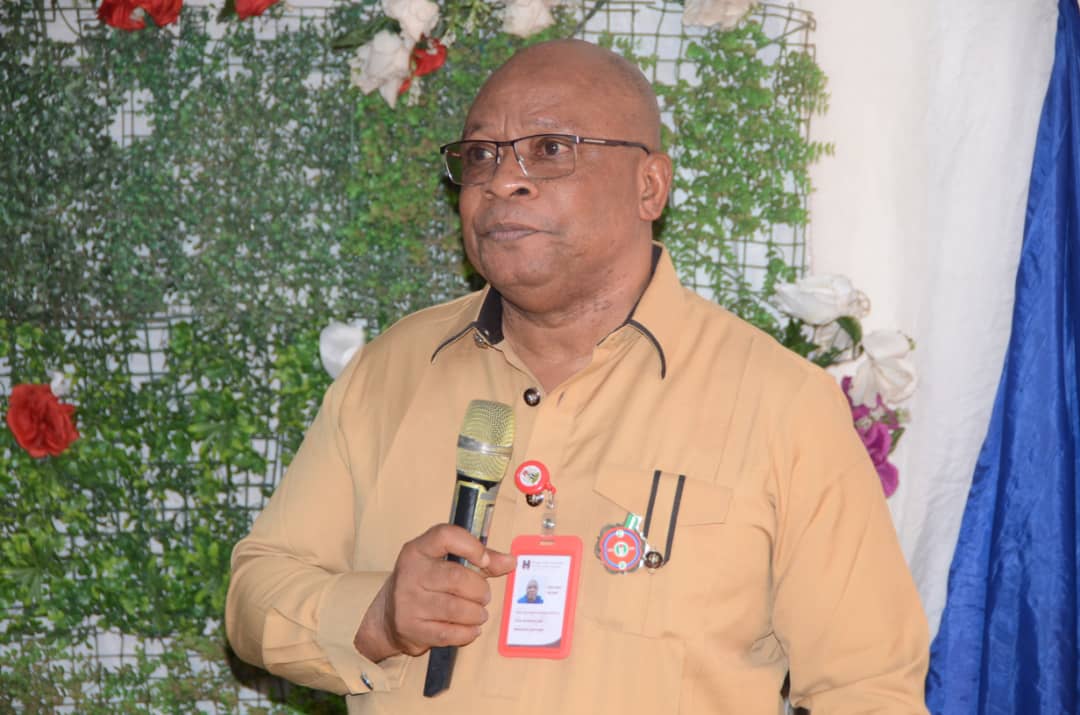In recent times, Nigeria has witnessed a concerning phenomenon—the rapid rise of private armies. Operating beyond the boundaries of formal security structures, these covert armed groups have sparked alarm among citizens and experts alike. This article embarks on a comprehensive exploration of the ominous implications of private armies in Nigeria, delving into their origins, potential repercussions, and the urgent need for decisive action.
Origins in a Complex Security Landscape
Nigeria’s historical trajectory has been defined by intricate security dynamics, encompassing insurgent factions, communal conflicts, and the complexities of ethnic diversity. The government’s ongoing struggle to effectively address these multifaceted challenges has inadvertently created fertile ground for the emergence of private armies. Arising as a response to the perceived shortcomings of conventional security infrastructure, these groups seek to fill the gaps in protection and representation.
The growth of private armies in Nigeria can be attributed to various factors. Economic disparities, coupled with limited opportunities in marginalized communities, have made many vulnerable to recruitment by these shadowy factions. Structural deficiencies within the formal security apparatus, exemplified by inadequate training and insufficient equipment, have driven individuals to seek alternative defense mechanisms. Furthermore, politically motivated funding and patronage from influential figures have fueled the unchecked expansion of these militias, undermining the rule of law.
Menace to Stability and Security
The presence of private armies poses a significant threat to Nigeria’s stability and security. Operating with relative impunity, these groups violate human rights and disregard legal norms. Their actions challenge the legitimacy of the state, potentially leading to a erosion of sovereignty. The escalation of violence and conflicts perpetuated by private militias has the potential to plunge communities into chaos, intensifying existing tensions and fracturing societal cohesion.
Analyzing specific instances involving private armies reveals the dire potential consequences. The emergence of Boko Haram led to the formation of the Civilian Joint Task Force (CJTF), an informal militia created to counter the insurgency. Similarly, the political machinations that contributed to the rise of Boko Haram also fostered banditry, while clashes between Fulani herdsmen and local communities gave rise to violence and the birth of security outfits like Amotekun in the South West.
Yet, this dynamic bypassed the South East, leading to the establishment of the Indigenous People of Biafra’s Eastern Security Network (ESN) and subsequently, the formation of “Ebube Agu” to counter ESN formed by IPOB. Clearly, the expansion of private armies in Nigeria remains a fluid and evolving landscape with far-reaching implications for national stability and security.
A Nexus of Political Patronage and Security Risk
The intricate connection between political patronage and the proliferation of private armies is exemplified by the allocation of multi-billion naira pipeline surveillance contracts to private entities. A notable example is the contract awarded to Government Ekpemupolo, also known as Tompolo, a former leader of the Movement for the Emancipation of the Niger Delta (MEND). This exposes glaring vulnerabilities within Nigeria’s security architecture, raising questions about the integrity of such arrangements and the potential security risks they entail.
The Dokubo Dilemma
Recent revelations by Asari Dokubo, who has been showcasing his private armies in various videos, add a new layer of concern. Dokubo’s threats against the people of the South East and the Governor of Rivers State have sent shockwaves through the nation. His claim of being contracted by the Nigerian government to combat banditry and kidnapping on the Abuja-Kaduna highway, alongside his army’s engagement in South Eastern states in collaboration with other security agencies, highlight the complex web of influence woven by private armies and the potential consequences thereof.
Navigating Legal Ambiguities and Global Precedents
The legal framework surrounding private armies in Nigeria remains ambiguous, lacking proper oversight and regulation. This ambiguity raises ethical concerns regarding the accountability of private militia members. The ripple effects of these militias extend beyond national borders, giving rise to concerns about their compliance with international humanitarian law and the potential global ramifications of their actions.
Even organizations like the Human Rights Writers Association of Nigeria (HURIWA) have staunchly opposed the existence of private militias on Nigerian soil, irrespective of their affiliations, deeming such endeavors not only legally unsound but also treasonous and intolerable. HURIWA challenges the Nigerian security apparatus to account for the source of weapons, personnel, modes of operation, and engagement of these private armies.
Drawing Lessons from International Realities
Nigeria’s current struggle with private armies echoes destabilizing situations witnessed in countries such as Afghanistan, Iraq, Syria, Libya, the Central African Republic, and Mali. The emergence of militias in these regions has perpetuated conflicts and entrenched instability. Examining global strategies aimed at effectively regulating and countering the influence of private militias holds paramount importance for Nigerian policymakers.
Interestingly, the global stage offers a stark illustration in the form of the Wagner Group—a Russian private military company backed by the state, embroiled in various conflicts. A recent episode involving the leader of the Wagner Group, Yevgeny Prigozhin, rebelling against the Russian Government and seizing control of cities, underscores the intricate ramifications of unchecked private military entities. This episode reinforces the urgent need for robust oversight and mechanisms of accountability to mitigate the destabilizing potential of private armies.
An Imperative for Comprehensive Countermeasures
The unchecked proliferation of private militias within Nigeria calls for a unified, comprehensive approach to address this ominous threat. Countering the expansion of private armies demands a cohesive strategy encompassing legal frameworks, regulatory vigilance, intelligence collaboration, and community engagement. Only through these multifaceted measures can Nigeria safeguard its security and stability in the face of this pressing challenge.
Constructing a Resilient Defense: Steps Toward Solutions
The multifaceted nature of the private army challenge in Nigeria necessitates a multifaceted response. Here are the steps that constitute a robust defense against this rising peril:
Laying Legal Foundations: Enact stringent legislation that explicitly addresses the roles, limitations, and responsibilities of private armies within the Nigerian context. Clarity in the legal sphere is paramount to ensure accountability.
Regulatory Vigilance: Establish a dedicated regulatory authority responsible for oversight, vetting, and monitoring the activities of private security companies. This body must ensure compliance, vetting of licenses, and stringent adherence to standards.
Thorough Licensing Process: Institute a rigorous licensing process for private security entities, demanding rigorous background checks, certification verification, and airtight financial evaluations. Regular reviews and swift revocations for violations are imperative.
Intelligence Fusion: Foster synergistic cooperation between private security companies and official law enforcement agencies to collectively identify and mitigate threats. A shared intelligence pool can lead to proactive and informed responses.
Community Participation: Engage local communities to collaboratively detect and report suspicious activities linked to private militias. Community-based initiatives can provide vital intelligence and foster a sense of ownership over security.
Transparency and Accountability: Mandate private security organizations to submit periodic reports detailing operations, personnel, and clientele. A transparent ecosystem discourages illicit practices and fosters trust.
Public Awareness Campaigns: Launch awareness campaigns that educate citizens about the dangers of private militias. By highlighting the repercussions, society can rally against participation and support for these entities.
Regional Collaboration: Forge partnerships with neighboring nations to curb cross-border movements of private militias. Coordinated efforts, intelligence sharing, and regional pacts can curb their spread.
Demobilization and Rehabilitation: Implement comprehensive programs for the demobilization of private army members. Providing pathways for reintegration into society can break the cycle of violence.
International Engagement: Collaborate with international organizations and countries that possess experience in addressing private militia threats. This cooperation can infuse Nigeria with critical expertise, training, and resources.
Economic Upliftment: Address socio-economic grievances in areas prone to private militias. Initiatives that generate employment opportunities and foster development can curtail recruitment prospects.
The Unifying Call to Action
The emergence and proliferation of private armies pose a potent challenge to Nigeria’s national security, stability, and governance. Effectively countering this multifaceted threat necessitates a holistic, united effort spanning government agencies, law enforcement, local communities, and international allies. Through a strategic synthesis of legal clarity, regulatory diligence, intelligence-sharing, and grassroots engagement, Nigeria can forge a path towards securing its nation and ensuring stability.




